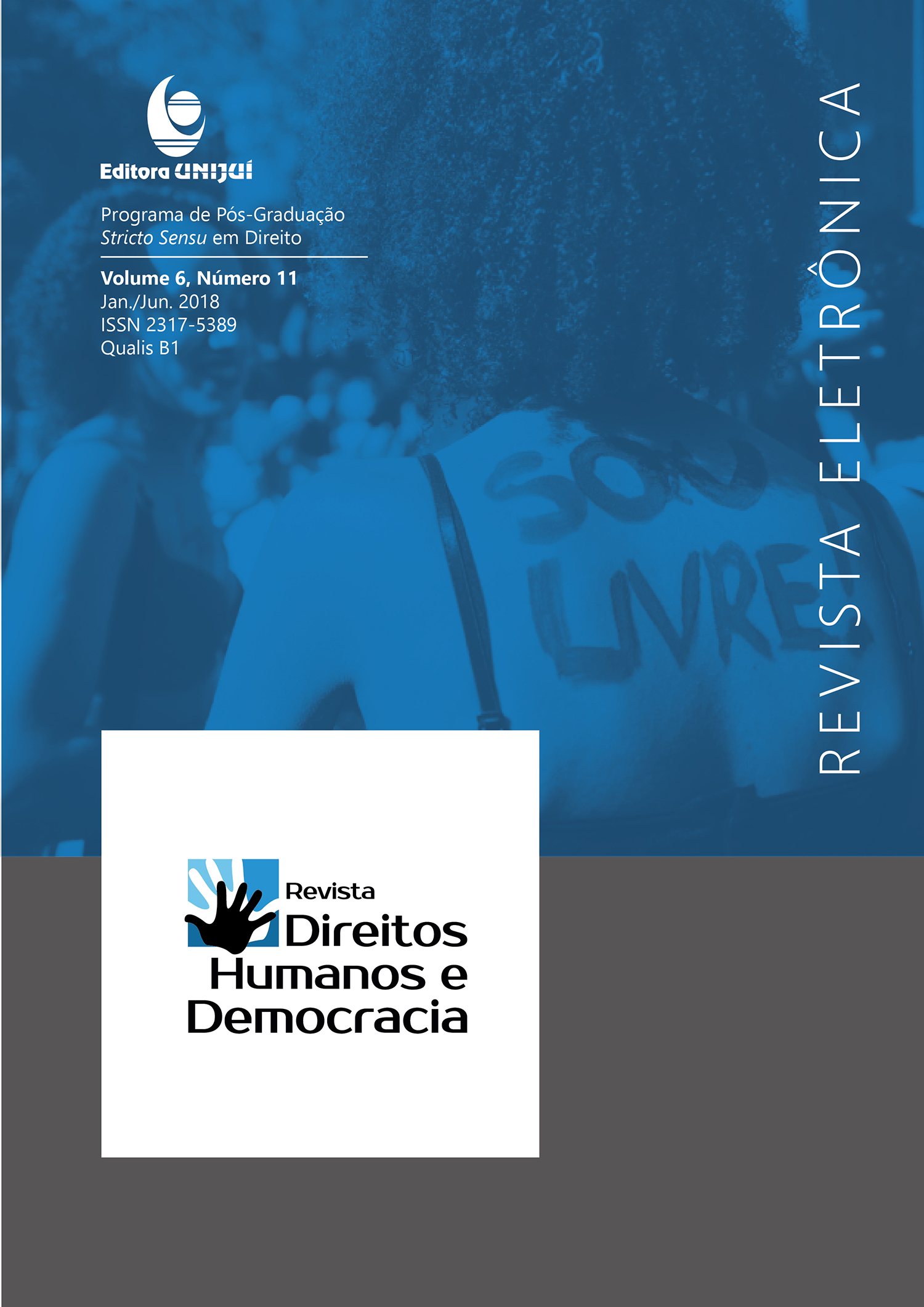ESTUDO DO SISTEMA INTERAMERICANO DE PROTEÇÃO DOS DIREITOS HUMANOS: ASPECTOS DA FRATERNIDADE EM CASOS DE MIGRAÇÃO NA CORTE INTERAMERICANA
DOI:
https://doi.org/10.21527/2317-5389.2018.11.379-405Abstract
Este artigo estuda o Sistema Interamericano de Proteção dos Direitos Humanos, em especial, quanto ao direito de migrar nas decisões da Corte Interamericana. Objetiva-se analisar a estrutura deste Sistema Regional e desvelar os paradoxos do direito de migrar na Corte. Utiliza-se como referencial teórico a Metateoria do Direito Fraterno, de Eligio Resta, partindo-se da ideia de fraternidade como um anacronismo, pois esta significa, atualmente, enxergar outras realidades, como são os fluxos migratórios. Realiza-se pesquisa bibliográfica em artigos nacionais e internacionais e relatórios de organizações e organismos que lidam com a temática dos direitos humanos e utiliza-se o método indutivo na pesquisa, pois se parte dos casos de migração da Corte Interamericana para compreender os fluxos migratórios na estrutura do Sistema Interamericano. A importância de estudar os fluxos migratórios neste sistema regional reside no fato de que, diante do aumento da mobilidade humana nos últimos anos, especialmente a forçada, necessita-se de aprofundamento do estudo desta mudança social no continente americano. A Europa tem sido o foco quanto à chamada “crise dos refugiados”, contudo, o continente americano também apresenta grande fluxo de pessoas e somente entendendo esta realidade é que se pode auxiliar no desenvolvimento das populações deste continente.Downloads
Published
How to Cite
Issue
Section
License
By publishing in the Revista Direitos Humanos e Democracia, authors agree to the following terms:
Articles are licensed under the Creative Commons Atribuição 4.0 Internacional (CC BY 4.0), which allows:
Share — copy and redistribute the material in any medium or format;
Adapt — remix, transform, and build upon the material for any purpose, including commercial use.
These permissions are irrevocable, provided the following terms are respected:
Attribution — authors must be properly credited, with a link to the license and indication of any modifications made;
No additional restrictions — no legal or technological measures may be applied that restrict the use permitted by the license.
Notices:
The license does not apply to elements in the public domain or covered by legal exceptions.
The license does not grant all rights required for specific uses (e.g., image rights, privacy, or moral rights).
The journal is not responsible for opinions expressed in the articles, which remain the sole responsibility of the authors. The Editor, with the support of the Editorial Committee, reserves the right to suggest or request modifications when necessary.
Only original scientific articles presenting research results of interest, not previously published or simultaneously submitted to another journal with the same purpose, will be accepted.
References to trademarks or specific products are intended solely for identification purposes and do not imply any promotional endorsement by the authors or the journal.
License Agreement: Authors retain copyright over their articles and grant the Revista Direitos Humanos e Democracia the right of first publication.













